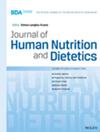Dietary Quality Analysis Methods for the Type 2 Diabetes Mellitus Population: A Scoping Review
Abstract
Background
High diet quality is associated with improved glycemic control in type 2 diabetes mellitus (T2DM) patients. Thus, mapping the dietary analysis methods that lead to the assessment of diet quality is essential for promoting glycemic control in individuals with T2DM. Therefore, this scoping review aimed to map and synthesize the available evidence on the use of dietary analysis methods to assess diet quality in individuals with T2DM.
Methods
This review was conducted following the Manual for Evidence Synthesis proposed by the Joanna Briggs Institute and the Preferred Reporting Items for Systematic Reviews and Meta-Analyses Extension for Scoping Reviews Checklist. Articles were searched in the MEDLINE (via PubMed), CINAHL (EBSCO), Embase, LILACS/BVS, Bireme, Scopus, and Web of Science databases. Additionally, grey literature was searched using Google Scholar. The protocol was registered in the Open Science Framework (DOI 10.17605/OSF.IO/HSKU9). Studies that utilized dietary analysis methods to assess diet quality in individuals with T2DM were included.
Results
Overall, 3761 studies were identified, and after the selection process, 33 publications were included for full analysis. Twenty-five indices were mapped to assess diet quality in individuals with T2DM. Only the Diabetes Healthy Eating Index was specific to this population. Considering the application of these methods, most indices were linked to the lowest scores, indicating lower diet quality, poor glycemic control, and other unfavourable health outcomes for the participants.
Conclusion
Despite the existence of various dietary methods for analysing diet quality, only one index was specific to individuals with T2DM. It is important to assess the applicability of these methods, considering that the quantity consumed must be evaluated to promote better glycemic control in this population.

 求助内容:
求助内容: 应助结果提醒方式:
应助结果提醒方式:


